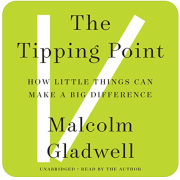As of June 2025, New York State’s Commissioner’s Regulation (CR) 155.17 requires school districts and BOCES to take significant steps to ensure student safety, emergency preparedness, and trauma-informed practices. This regulation outlines detailed requirements for planning, training, communication, and reporting, all aimed at creating safer, more responsive school environments.
To help school leaders stay compliant, here’s a breakdown of key action items and deadlines:
Planning and Documentation Requirements
Update and Adopt Safety Plans by September 1
- Ensure district-wide school safety plans and building-level emergency response plans are reviewed, updated, and adopted annually by September 1.
- Confirm that remote instruction protocols during emergency school closures are incorporated (starting from the 2023–2024 school year).
Ensure Inclusion of New Definitions and Teams
- Revise all safety plans to include:
- Definitions of disaster, trauma, trauma-informed, and trauma-informed drills.
- Updated terminology and responsibilities for school safety teams and emergency response teams.
Drill and Training Implementation
Implement Trauma-Informed Drill Procedures
- Revise emergency drill protocols to:
- Prohibit use of props, actors, simulations, or mimicry of real-life violence.
- Be age-appropriate and trauma-informed.
- Ensure students and staff are informed it’s a drill (except for evacuation drills).
- Provide advance parental notice within one week prior to any drill involving students.
Comply with Specific Drill Frequency and Structure
- Schedule and document:
- 8 evacuation drills per year (6 before Dec. 31, with variation in time and location).
- 4 lockdown drills per year (2 before Dec. 31).
- 1 emergency early dismissal drill, with parent notification at least one week in advance.
- Drills during night hours for schools with sleeping accommodations.
- 2 summer school evacuation drills (if applicable).
Plan Components and Training Requirements
Enhance Prevention and Intervention Strategies
- Develop or participate in behavioral assessment or threat assessment teams (school, district, or county-level).
- Provide annual staff training on team purpose and emergency procedures.
- Incorporate de-escalation and nonviolent conflict resolution training for safety officers and staff.
Update Communication Protocols
- Establish or strengthen:
- Anonymous reporting systems.
- Youth-led programs, peer mediation, and mentoring forums.
- Communication strategies between students, staff, and parents on reporting threats or concerns.
Distribute Informational Materials
- Share materials on:
- Early detection of violent behaviors.
- Family, community, and environmental risk factors.
- Ensure dissemination to teachers, administrators, bus drivers/monitors, parents, and students.
Mapping, Submission, and Confidentiality
Ensure Updated and Accurate Floor Plans
- For each school, verify that maps and schematics:
- Include labeled exits, fire safety equipment, and emergency resources.
- Are updated, clearly marked, and accessible to first responders.
Submit Building-Level Plans Annually by October 1
- Submit plans and any amendments to:
- Local law enforcement
- New York State Police
- Ensure confidentiality and restricted access to building-level plans.
Chief Emergency Officer Duties
Assign and Empower the Chief Emergency Officer
- Designate the superintendent or designee as Chief Emergency Officer.
- Responsibilities include:
- Coordinating staff training.
- Overseeing trauma-informed drills.
- Ensuring plans and protocols are implemented in all buildings.
Reporting Requirements
Timely Emergency Reporting
- Immediately report to the Commissioner when:
- An emergency response plan is activated and results in school closure (excluding routine snow days).
- Ensure BOCES coordination for joint reporting, where applicable.
Technology Access Survey Submission
- Submit annual student device and internet access survey results by June 30 each year using the Commissioner’s format.
Checklist Summary for Compliance
| Area | Required Action | Deadline |
| Safety Plan Adoption | Update & adopt plans | Sept 1 (annual) |
| Emergency Drill Schedule | Complete required drills | Throughout school year |
| Remote Learning Inclusion | Integrate into plans | By 2023–2024 |
| Behavioral Assessment Team | Create/participate & train | Annual |
| Plan Submission | Send to law enforcement | By Oct 1 (annual) |
| Emergency Reporting | Notify commissioner | ASAP post-closure |
| Technology Survey | Submit results | By June 30 (annual) |
| Parent Notification | For emergency drills | Min. 1 week prior |
Shared by Jim Mills
Vice President for Program and Events, Buffalo/Niagara PDK




